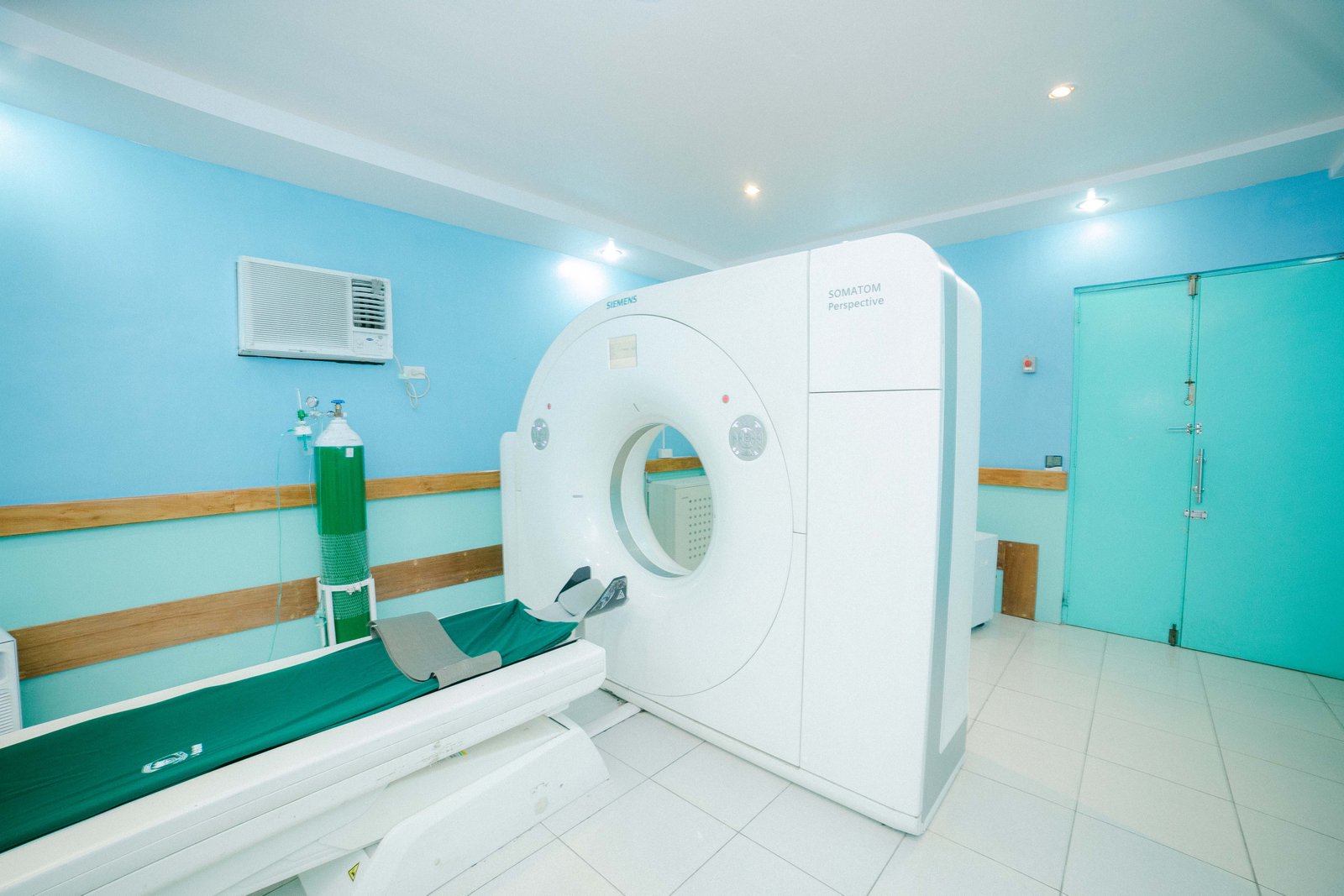Mount Carmel Diocesan General Hospital is proud to offer advanced imaging services using our top-of-the-line Siemens Somatom Perspective 64-Slice CT scanner. This cutting-edge technology enables us to provide exceptional care and diagnostics to our patients.
Computed Tomography (CT) Scans are non-invasive imaging procedures that use X-rays and computer technology to create detailed cross-sectional images of the body. These images allow doctors to visualize internal structures and detect abnormalities, such as:
- Masses
- Bleeding
- Fractures
- Stroke
- Pulmonary Disease
CT-scan-routine region specific plain and contrast-enhanced CT imaging of the head, neck, chest, abdomen, extremities.
Special CT-scan procedures:
Cranial Angiography: Visualizes the blood vessels in the brain. This is used to diagnose aneurysms, arteriovenous malformations (AVMs), and other conditions affecting the brain's blood supply.
Carotid Angiography: Evaluates the blood vessels in the neck, which supply blood to the brain. This is often used to diagnose and monitor carotid artery stenosis, a condition where the arteries become narrowed.
Thoracic Aortogram: Examines the pulmonary arteries, which carry blood from the heart to the lungs. This is used to diagnose pulmonary embolism, a blood clot in the lungs.
Renal Angiography: Evaluates the renal arteries, which supply blood to the kidneys. This is used to diagnose renal artery stenosis, a condition that can lead to high blood pressure and kidney failure.
Abdominal Aortogram: This is a specific type of abdominal angiography that focuses on the aorta, the largest artery in the body. Aortograms are used to diagnose aortic aneurysms, which are bulges in the aorta that can rupture and cause life-threatening bleeding..
Lower Extremity Angiography: This procedure visualizes the blood vessels in the legs and feet. It is used to diagnose peripheral arterial disease (PAD), a condition that occurs when the arteries in the legs become narrowed or blocked.
Upper Extremity Angiography: This procedure visualizes the blood vessels in the arms and hands. It is used to diagnose conditions such as subclavian artery stenosis and thoracic outlet syndrome.
Virtual colonoscopy: a non-invasive imaging technique that uses CT scans to examine the colon for polyps and other abnormalities. It offers a convenient alternative to traditional colonoscopy, which involves inserting a colonoscopy into the rectum.
CT-guided biopsy: a procedure that involves using CT imaging to guide a needle to a specific area of the body to obtain a tissue sample. This sample is then sent to a pathologist for analysis.
Service hours: 24/7
Monday to Saturday
8:00AM to 5:00PM (Contrast procedures by Appointment)
Beyond 5:00PM (Stat procedures)
Sunday (Stat procedures)
- Phone: 09321244229 / 09569572928
- TelNo: (6342) 710-2576
- Local: 400





